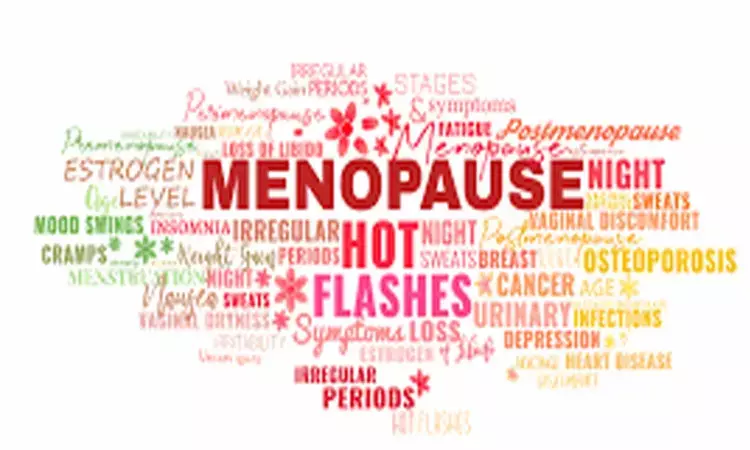- Home
- Medical news & Guidelines
- Anesthesiology
- Cardiology and CTVS
- Critical Care
- Dentistry
- Dermatology
- Diabetes and Endocrinology
- ENT
- Gastroenterology
- Medicine
- Nephrology
- Neurology
- Obstretics-Gynaecology
- Oncology
- Ophthalmology
- Orthopaedics
- Pediatrics-Neonatology
- Psychiatry
- Pulmonology
- Radiology
- Surgery
- Urology
- Laboratory Medicine
- Diet
- Nursing
- Paramedical
- Physiotherapy
- Health news
- Fact Check
- Bone Health Fact Check
- Brain Health Fact Check
- Cancer Related Fact Check
- Child Care Fact Check
- Dental and oral health fact check
- Diabetes and metabolic health fact check
- Diet and Nutrition Fact Check
- Eye and ENT Care Fact Check
- Fitness fact check
- Gut health fact check
- Heart health fact check
- Kidney health fact check
- Medical education fact check
- Men's health fact check
- Respiratory fact check
- Skin and hair care fact check
- Vaccine and Immunization fact check
- Women's health fact check
- AYUSH
- State News
- Andaman and Nicobar Islands
- Andhra Pradesh
- Arunachal Pradesh
- Assam
- Bihar
- Chandigarh
- Chattisgarh
- Dadra and Nagar Haveli
- Daman and Diu
- Delhi
- Goa
- Gujarat
- Haryana
- Himachal Pradesh
- Jammu & Kashmir
- Jharkhand
- Karnataka
- Kerala
- Ladakh
- Lakshadweep
- Madhya Pradesh
- Maharashtra
- Manipur
- Meghalaya
- Mizoram
- Nagaland
- Odisha
- Puducherry
- Punjab
- Rajasthan
- Sikkim
- Tamil Nadu
- Telangana
- Tripura
- Uttar Pradesh
- Uttrakhand
- West Bengal
- Medical Education
- Industry
How premature menopause increases risk of cardiovascular disease, reveals study

BOSTON - Menopause that occurs before a woman is 40 years old accelerates aging and is a risk factor for cardiovascular disease. New research led by investigators at Massachusetts General Hospital (MGH) reveals women with such premature menopause often exhibit certain blood cell changes that elevate their risk of developing coronary artery disease. The findings, which were published in Circulation to coincide with the American Heart Association's Scientific Sessions 2020, uncover the mechanisms behind premature menopause's link to cardiovascular disease and point to a potential blood marker for identifying women at especially high risk.
"We recently found that the presence of chronological-age-associated mutations in blood cells--called clonal hematopoiesis--without overt cancer is a new risk factor for coronary artery disease," says senior author Pradeep Natarajan, MD, who is an investigator in Preventive Cardiology at MGH and an assistant professor of Medicine at Harvard Medical School. "We wondered whether earlier age at menopause independently was associated with clonal hematopoiesis."
To investigate, the team analyzed blood samples from 11,495 postmenopausal women aged 40-70 years from the UK Biobank and 8,111 postmenopausal women aged 50-79 years from the U.S.'s Women's Health Initiative (WHI). A total of 418 women (2.1 percent) had natural premature menopause and 887 (4.5 percent) had surgical premature menopause. Over a median follow-up of 10.0 and 13.1 years in the UK Biobank and the WHI, respectively, there were 473 and 1,146 new cases of coronary artery disease. The team used DNA sequencing of blood cells to identify the presence of clonal hematopoiesis. (Its presence was not detectable by routine clinical laboratory tests, including complete blood counts or C-reactive protein.)
Premature menopause was associated with a 36 percent higher likelihood of exhibiting clonal hematopoiesis in the blood, with a larger association for women with natural premature menopause. Clonal hematopoiesis was in turn associated with a 36 percent higher likelihood of developing coronary artery disease. When there were high levels of clonal hematopoiesis, the risk was 48 percent higher.
Previous research has shown that coronary artery disease that arises following clonal hematopoiesis may involve key inflammatory pathways that are less relevant in the context of other cardiovascular risk factors. Therefore, women with premature menopause and signs of clonal hematopoiesis may benefit from prevention strategies targeting these pathways.
"Our work suggests that women with premature menopause are enriched for clonal hematopoiesis, and screening may facilitate novel precision medicine strategies for coronary artery disease in affected women," says Natarajan.
https://www.ahajournals.org/doi/10.1161/CIRCULATIONAHA.120.051775
Hina Zahid Joined Medical Dialogue in 2017 with a passion to work as a Reporter. She coordinates with various national and international journals and association and covers all the stories related to Medical guidelines, Medical Journals, rare medical surgeries as well as all the updates in the medical field. Email: editorial@medicaldialogues.in. Contact no. 011-43720751
Dr Kamal Kant Kohli-MBBS, DTCD- a chest specialist with more than 30 years of practice and a flair for writing clinical articles, Dr Kamal Kant Kohli joined Medical Dialogues as a Chief Editor of Medical News. Besides writing articles, as an editor, he proofreads and verifies all the medical content published on Medical Dialogues including those coming from journals, studies,medical conferences,guidelines etc. Email: drkohli@medicaldialogues.in. Contact no. 011-43720751


